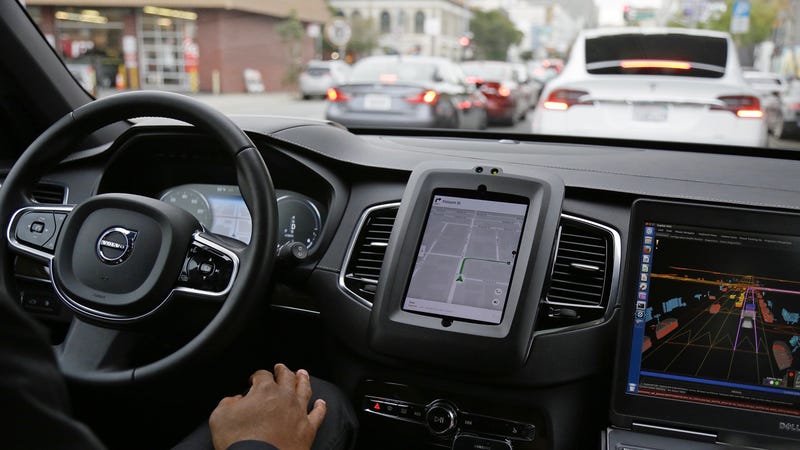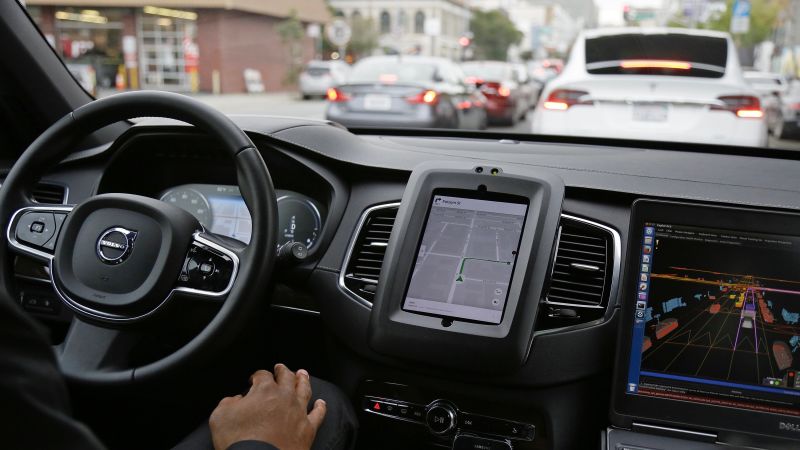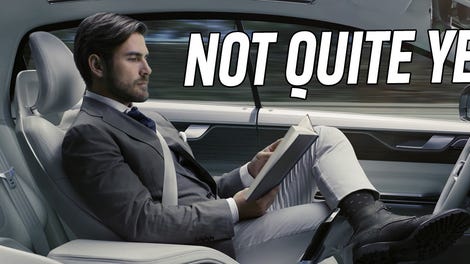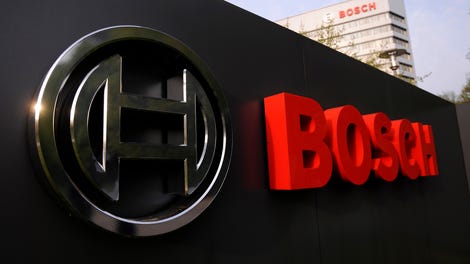
At a hearing today, Republicans in Congress made clear they want to drastically increase the number of semi-autonomous and autonomous cars tested on American roadways. It’s a proposal that should make driverless car developers giddy but could potentially pose safety risks if not done correctly.
A 45-page draft legislation written by Republicans on the Energy and Commerce Committee’s Digital Commerce and Consumer Protection Subcommittee outlines federal regulation regarding the testing and future deployment of autonomous vehicles.
Advertisement
The package of 14 bills would also greatly increase the number of exemptions for vehicles outside of the typical Federal Motor Vehicle Safety Standards. Currently, the FMVSS requires cars to have steering wheels, brake pedals and turn signals—equipment not necessary in autonomous vehicles.
Advertisement
Automakers who want to design and test cars have to apply for exemptions to these requirements; the bills would increase exemptions granted by the feds from a current 2,500 cars to a whopping 100,000.
In other words, automakers will be able to test far more vehicles that don’t follow traditional safety standards without having the Feds on their case for the seats facing backwards, or something like that. Or not having a steering wheel.
Advertisement
The legislation would be a big win for automakers and tech companies, who currently test steering wheel and other equipment-free cars in states with lax requirements, like Michigan, California and Florida. To get the feds to breakdown restrictions, Ford, Google, Volvo, Lyft and Uber—all testing autonomous vehicles—recently banded together to form a lobbying group to advocate for lax federal laws on the issue.
David Strickland, the former National Highway Traffic Safety Administration chief who now speaks for these companies, said he was in full favor of increasing the number of test cars that don’t follow the federal standard. He also said putting NHTSA in charge was smart, as it would prevent states from each making different rules that could make driverless car models legal in certain states and not in others.
But not everyone thinks this is the answer.
Advertisement
Democratic Rep. Jan Schakowsky from Illinois took aim at these initiatives, saying instead of giving carmakers exemptions to these federal standards, the government should just modify the standards for the 21st century.
She called for NHTSA to determine the additional safety standards necessary to updating existing federal standards that meet driverless carmakers’ needs.
Other lawmakers pointed out their own issues.
Advertisement
DemocraticNew Jersey Rep. Frank Pallone, who confirmed members of his party were not involved with crafting the bills, pointed out how not only was a representative from NHTSA not present on the panel to comment on the legislation, but that President Donald Trump has yet to recommend a head for the agency.
Advertisement
He further stressed a need for NHTSA to have an adequate amount of resources to lead the autonomous charge, yet NHTSA’s budget proposal is more focused on deregulatory action that contradicts Congressional mandate.
“We should not be pushing bills out of committee before hearing from the administration about how the bills would or could be implemented,” Pallone said.
Advertisement
Alan Morrison, associate dean at the George Washington University Law School, joined Schakowsky in criticizing the draft, calling bullshit on its insistence that exemptions are granted only for testing. To Morrison, semi- or highly autonomous vehicles in the testing phase are limited to cars operated only by the manufacturer.
Instead, Morrison said the proposed legislation goes beyond testing since it lets the public or car-sharing companies like Lyft and Uber take control of the vehicle, and that should not be permitted. He also said the draft does not clarify when NHTSA can and can’t grant a manufacturer an exemption to test wacky, steering wheel-free cars.
Instead, he said Congress or NHTSA should supply a standard for features designed for driverless cars.
Advertisement
Advertisement
“We don’t need any exemptions for the testing phase,” Morrison said.
The draft legislation is clearly imperfect, and Democrats and Republicans are busy taking shots at each other in public hearings than actually crafting the draft together in the first place. With safety on the line and the technology hurdling its way into the market, government clarifications to the authority of NHTSA cannot wait.
















